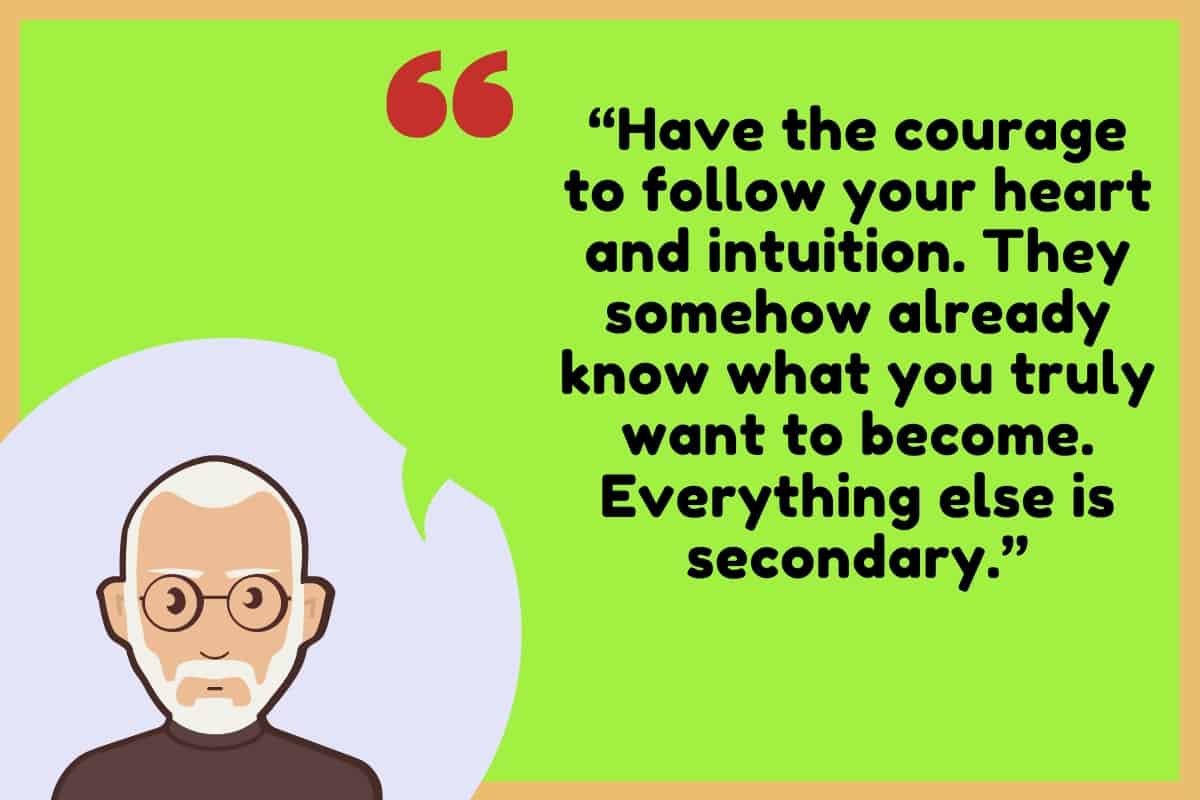So Good They Can’t Ignore You Summary by Cal Newport teaches you why following the conventional “follow your passion” advice can be dangerous and why instead of finding the right work, you should work right.
Who should read “So good they can’t ignore you summary”?
- Anyone who is looking towards a better career.
- A teenager who wants to bring clarity in life.
- A professional who wishes to switch his job.
So good they can’t ignore you summary (PDF)
Are you feeling unfulfilled in your current job? Do you often find yourself frustrated when making career decisions? Do you dream of finding that perfect job that will solve all your financial worries and bring you true satisfaction?
If so, you’re not alone, and you’re in the right place. Today, I’m excited to share with you some transformative insights from Cal Newport’s groundbreaking book, “So Good They Can’t Ignore You.”
The book teaches you why following the conventional “follow your passion” advice can be dangerous and why instead of finding the right work, you should work right.
Alrighty, without further ado, let’s dive in!
How passion became a buzzword

The term “passion” has become ubiquitous today.
Almost every self-help guru out there promotes the idea of finding your passion and dedicating your hundred percent of the time to it.
But have you ever wondered how this “passion” thing became so popular?
Well, all this buzz around passion started when Steve Jobs gave a life-changing speech at Stanford.

He said many things, but the idea that hit the spotlight was that you should follow your passion if you want to succeed.
In this book, Cal Newport explains why pursuing your passion without any skills or career capital can be dangerous.
Keep reading to learn more.
Passion is rare
It’s counterintuitive to say that you don’t follow your passion.
Why is this so?
This is because the very idea of following your passion sounds natural.
The whole idea is based on the fact that we all possess some hidden talent.
And if you drift your life in that direction, you would probably become successful.
But if you critically observe in real life, you would find that there aren’t many people who have become successful by taking this conventional advice.
And this is the myth that Cal focuses on busting throughout this entire book.
Even Steve Jobs didn’t follow that standard advice of following your heart or inner calling.
If Steve had followed this simple advice, he would probably be a Zen-Master today.
Cal Newport
When you look at the video where Steve gave that memorable speech, you would see a guy who is passionate about what he does.
But it only shows that it’s good to enjoy what you do.
It doesn’t confirm the passion hypothesis.
That is why you should not follow this simple generic advice and get motivated.
If you admire Steve, you should look at his entire life’s journey instead.
Side effects of Chasing passion

Chasing passion has its consequences. For example, people who follow their passion often have the mindset that there is a magical job waiting for them, and they only need to discover it. This mindset can lead to several future problems.
People with a passion mindset change their jobs frequently. They look for the job they could love and enjoy doing, always checking which job appeals to their inner calling. Now, you might ask, what’s wrong with finding the job you love?
There is nothing wrong with finding the job you love. The problems start when you fail to find it. When that happens, self-doubt creeps in, and you start doubting your capabilities just because a job didn’t appeal to your inner calling. Another negative consequence is job dissatisfaction.
Imagine you’ve tried working as a teacher, then as a marketing assistant, and later as a customer service representative. Now, you’re working as a graphic designer. Each job seemed interesting at first, but none of them felt exactly right. You start thinking maybe being a web developer or doing digital marketing could be the job you’ve been dreaming of. This uncertainty can lead to spending a lot of time searching for what feels like the perfect job.
This situation happens a lot. Each job might have good parts, but it might not be exactly what you want for your career. It’s important to remember that finding the best job isn’t just about trying different jobs until one feels perfect. It’s about learning skills and gaining experience that will help you find a job you really love in the future.
Don’t Do What You Love, Do What You’re Good At
If you want to love what you do, abandon the passion mindset (“what can the world offer me?”) and instead adopt the craftsman mindset (“what can I offer the world?”)
Cal Newport
Counterintuitively, you shouldn’t focus only on getting a job you might love.
You should focus on acquiring the skills required to create the job you love.
It sounds confusing, doesn’t it?
Let me explain.
It simply means that if you seek your dream job without gathering enough skills to back you up, then there is a high probability that you will fail.
Why is this the case?
To understand this, you’ll need to understand The Craftsman Mindset.
The Craftsman Mindset

The Craftsman Mindset focuses on building a set of skills required to create a remarkable career.
The basic idea behind this is:
“If you want something rare and valuable, then you first need to give something rare and valuable in return.”
Cal Newport
It resonates with the natural law of giving and taking.
It simply focuses on getting better at what you do.
Instead of seeking a job you love, it promotes the idea of putting in hours into deliberate practice.
It means without expecting what your magic job would provide, you build something that the world needs.
To adopt this mindset, you will need to research what rare skills you can develop to solve a significant pain in the market.
What you give is what you get.
That’s all there is to it.
The craftsman mindset clarifies what you should do to achieve what you want.
“No one owes you a great career, it argues; you need to earn it –and the process won’t be easy.”
Note: You should read Outliers Summary to know why deliberate practice is essential to achieve excellence or mastery in a skill.
Passion is The Side Effect of Mastery
You don’t need to become passionate to find a remarkable career you can love.
Passion comes as a side-effect when you dedicate yourself to achieving mastery.
Look at Steve Jobs in the video where he gave that memorable speech.
Does he look like a guy who does his job just for the sake of doing it?
Obviously not.
When you stick around with something or practice something for hours, you feel attached.
And gradually, you become passionate about it.
Build Your Career Capital

Don’t just decide that you are passionate about doing X thing one day. Build career capital instead.
Confused about what career capital is?
I’ll explain.
Think of your career as a big empty bag.
And think of skills like pieces of gold.
Your goal is to fill the bag with pieces of gold.
Why am I relating skills to gold?
Because you don’t have to grab anything of value, you have to grab something of the highest quality.
Now the more gold you put in the bag, the richer you become.
Okay, enough of the example.
Let’s talk about the real thing.
The thing is, you have to have skills that are rare and hard to acquire.
If you want something rare and valuable, give something rare and beneficial to the world.
The above sentence pretty much sums up the whole point of this book.
And this is why you need to grow your career capital.
Maintain Autonomy in work
Three traits make people love their work: impact, creativity, and control.
One prominent trait of a great career is AUTONOMY.
Why is autonomy so important?
Let’s find out.
When you control what you do, you feel more happy and content.
It almost feels like you are in control of your destiny.
Well, you pretty much do for real, no doubt in that.
But what’s more important is the sense of satisfaction you get from your work.
And that is why once you acquire traits of the career you love, you should focus on establishing autonomy over it.
There is a caveat, though:
You should avoid pursuing more control in your life before you acquire enough career capital.
Control is power, and power is seductive.
It’s easy and tempting enough to stray from the right path.
It is one hell of a trap people fall into more often than not.
Heard of the idea of leaving 9-5 jobs and pursuing your dreams?
Indeed, you have heard of it at least once at some point in your life.
Haven’t you?
Many enthusiasts leave their jobs to pursue more control in their lives without first building career capital to offer in return.
Mere enthusiasm isn’t enough.
Enthusiasm alone is not rare and valuable and is therefore not worth much in terms of career capital.
Cal Newport
Remember the law of give and take we discussed earlier?
Unless you have something to give in exchange, you shouldn’t expect much of your work to provide you with.
Modern companies these days are focusing on the result-centric approach.
Instead of controlling their employees, they give them control over what they do.
Researchers have found that companies that give autonomy to their workers get better results than those that don’t.
Control Brings Resistance
When you gain enough career capital, a strange phenomenon happens.
Wondering what?
Let me tell you.
Suppose you are working for a company.
Let’s say you have built enough store of your career capital.
Now what? Your employers won’t love to give you control of your life.
Your employers would use every tactic out there so that you reinvest your career capital in the career you have at their company.
They will throw irresistible incentive offers to you so that you don’t pursue more control in your life.
Who doesn’t like a hefty bonus?
After all, we are humans with desires.
Aren’t we?
It is also one type of trap that can hold you back from building a career with more autonomy.
The law of financial viability
The law of financial viability states:
“Do what people are willing to pay for.”
Cal Newport
The money factor helps you analyze whether you have built enough career capital to back yourself up or not.
If what you are doing isn’t worth some money, then it is not valuable to others and not worthy of your career.
Therefore, anything done just for the sake of fun is out of the question.
Simply put, do proper research before you develop any skills.
Ask yourself questions like:
“Are people willing to pay for those skills?”
“Does the skill I wish to learn to provide any value to the world?”
Only after asking such critical questions will you build a flourishing and remarkable career.
Think of it as an investment.
You need to invest in your career to maintain control over your work.
And investing without understanding where to invest doesn’t bring satisfactory results.
So good they can’t ignore you review
The best idea from this book?
Craftsmen Mindset. The book pretty much focuses on this.
Many people chase their dream careers and still don’t become exceptional at one.
Is this book worth your time?
Definitely, I would say.
It is our careers where we spend most of our lives.
And learning how to build a profitable career is very critical.
The key takeaways from “So Good They Can’t Ignore You”
- Don’t blindly chase your passion.
- Expand your career capital.
- Acquire skills that are rare and valuable.
Learn more key insights like this on Blinkist and get instant access to 3000+ non-fiction titles. Plus, listen to full-length audiobooks and podcasts. So what are you waiting for? Start 7-day free trial. You won’t be charged if you cancel before the trial ends.
Click here to Sign Up and Start Blinkist 7-days risk-free trial
Final thoughts
So all this time, we discussed why following your passion is a piece of terrible advice.
You might have questions like:
“Should I stop following my passion?”
“Why do many people strongly believe in it?”
And many more…
Look, following your passion is very generic advice.
On top of that, it only works for a few people.
Following advice that doesn’t guarantee a remarkable career has a high risk.
And therefore, it’s a terrible idea to follow your passion without building career capital first.
Now you tell me
I want to know your opinion on this.
Do you believe in the passion hypothesis?
Is there a better way other than the craftsman approach to build a successful career you can love?
Let me know what you think in the comments below.
If you enjoyed reading So Good They Can’t Ignore You Summary, feel free to share this with your friends and family members.
Help others in bringing clarity regarding their careers.
